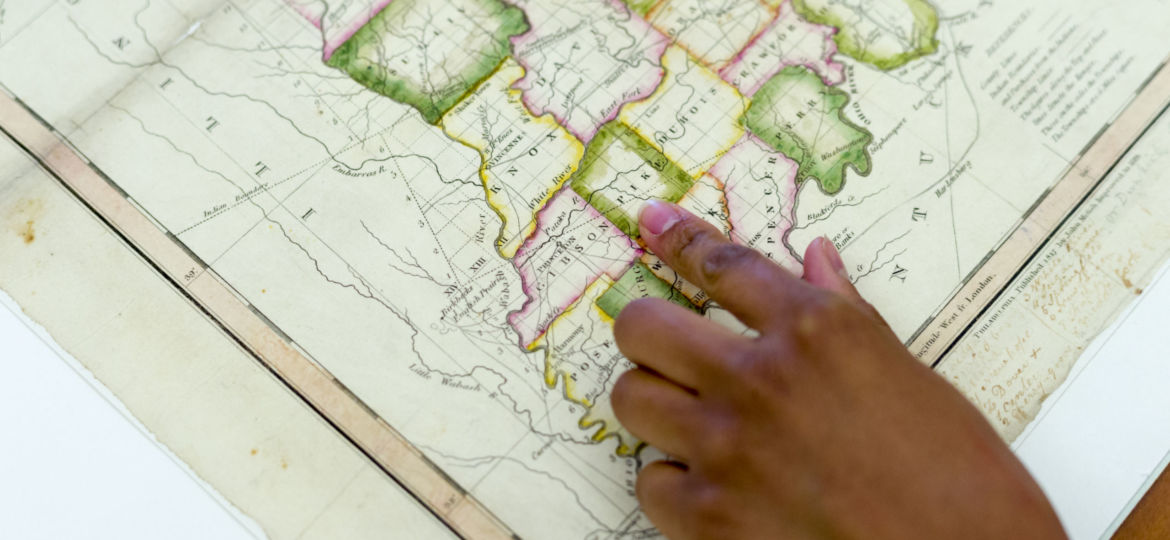
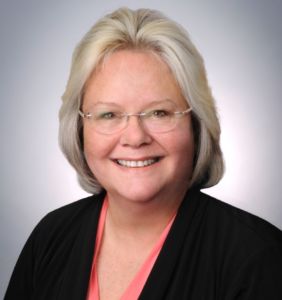
“I’ve always wanted to be a character,” says Priscilla Austgen, a retired-attorney-turned-genealogist who loves research and libraries — a perfect storm for genealogy. Austgen has uncovered several ancestral “characters” within her family, which includes descendants of the Filles du roi (daughters of the king), who were sent to “New France” (now Quebec) to boost its population.
Austgen became interested in genealogy during the process of becoming a member of the Caroline Scott Harrison Chapter of DAR (Daughters of the American Revolution). She engages in research on behalf of others wishing to know more about their family histories. Many members of DAR have an affinity towards genealogy and therefore a natural attraction to Midwestern Roots, a genealogy conference organized by the Indiana Historical Society. This year’s conference runs July 14-16.
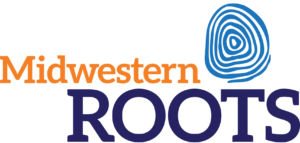
Midwestern Roots offers seminars for any level of expertise for family sleuthing.
“Learning how and where to do the research is tremendously valuable,” states Austgen, who recently attended her family’s 115th reunion this summer in northern Indiana. “Approximately 20% of available records are online. It’s the remaining 80% which may have answers for someone’s family. Knowing which resources to target can save time.”
Through her research, Laura Smith, a veterinarian on the south side of Indy, discovered a family link to The Mayflower Society, to the Jamestowne Society, and subsequently to DAR. Over the past decade, Smith and her father have covered the cost for over sixty of their relatives to take DNA tests.
“I’ve been into genealogy since middle school,” says Smith, who has discovered a personal DNA link to Coretta Scott King through her genealogy research. “It’s taken my family on an amazing journey. My newly discovered cousins have changed my life.”
The genealogy research process sounds like a treasure hunt, but where to begin?
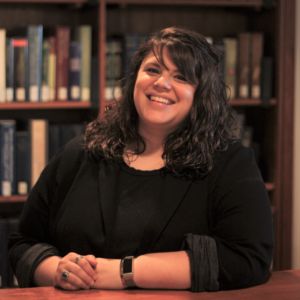
“Midwestern Roots is one of the top genealogy conferences, with speakers top in their field,” says event co-chair Lauren Peightel. “Our speakers hit on all of the things you want to know in our classes and seminars.”
Genealogy is a multi-billion-dollar industry, thanks to 23andMe, Ancestry.com, and others. It can be a valuable tool of discovery and of interest but could have other unintended consequences.
“I am frequently asked by friends which DNA kit they should buy for someone as a holiday gift. I ask them if the friend asked for it and if they want to be responsible for the results. Many families are completely stunned by the results,” says Peightel, Manager of Engagement for the Indiana Historical Society. “It’s best to let people explore their roots on their own.”
This year’s theme of the conference is immigration. “The Midwest is much more diverse than many may realize,” adds Peightel. “Through storytelling, we are capable of building better empathy skills, enabling us to be better human beings through cultural and community heritage.”
From Peightel’s letter to attendees:
For the first time in more than 20 years, the Midwestern Roots team issued a call for sessions for engaging and energetic storytellers exploring how immigration and migration have impacted the story of the Midwest. Prospective storytellers really embraced this chance to discover, interpret and share the stories of our communities and families with all of you, and they all share a common belief that each of one of our individual stories impact how we view and interact with the world around us. Each one of us believes that every community has many stories waiting to be shared, and each one of them can reveal something to us in our own story.
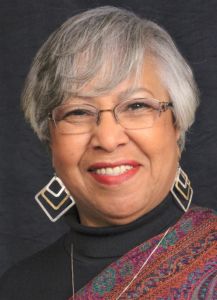
One of Midwestern Roots’ speakers is Carretha Hale. Hale recalls her great grandmother telling her that “we were with the Indians,” and Hale wondered what she meant. Hale knew that her family was from Oklahoma and after her great grandmother passed, she found a form for the Creek Freedmen. Her name was on it alongside her mother’s and her sister’s. Hale went to the library to find out what it meant.
“I had no idea, until I did some research, that the ‘five civilized tribes’ had enslaved people,” states Hale, who resides in Indianapolis and was the first person in her family to be born outside of Oklahoma. “My family was enslaved by the Creek Nation.”
This bit of news started Hale on a journey to understand her family’s history. Not only is Hale Creek on her maternal side, but she is also a descendant of the Cherokee Nation on her paternal side.
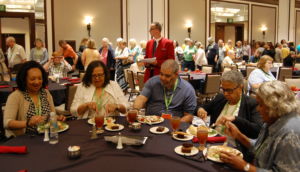
Hale attended her first genealogy conference in Knoxville, Tennessee, and when the Midwestern Roots conference started, she thought she had died and gone to genealogy heaven.
“The seminars talk you through how it works and what to look for in a variety of different subjects, addressing technique and other means to go about researching our past,” says Hale, who is working on a book on her historical research.
“Many are unaware that the Native Peoples had slaves. I want to inform my family and the public of what I have learned about this unique history,” adds Hale, who is speaking at Midwestern Roots on the topic of the Lick Creek Settlement that was in Orange County, Indiana.
“An accurate account of history is more important now than ever,” states Hale. “Our young people need to learn the history of the U.S. It’s not pretty and it may be up to them to do something about it. The truth always prevails.”
Kara Kavensky is a contributing writer to Indy Maven. She owns The Storyteller Agency and is a DAR member, embarking on her own genealogy journey into her family, which she will likely turn into one of her next books. Kara definitely has some characters in her family tree.
All of our content—including this article—is completely free. However, we’d love if you would please consider supporting our journalism with an Indy Maven membership.









